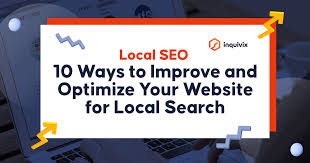SEO Recommendations for a Website
Search Engine Optimization (SEO) is crucial for improving a website’s visibility and attracting organic traffic. Implementing the following recommendations can help enhance your website’s SEO performance:
Keyword Research:
Identify relevant keywords related to your business or content. Use tools like Google Keyword Planner to discover high-volume, low-competition keywords that you can target in your content.
On-Page Optimization:
Optimize title tags, meta descriptions, headings, and image alt text with targeted keywords. Ensure that your content is well-structured and easy to read by both users and search engines.
Quality Content:
Create informative, engaging, and original content that provides value to your audience. Regularly update your website with fresh content to keep visitors coming back and improve search engine rankings.
Mobile-Friendly Design:
Ensure that your website is responsive and mobile-friendly. Google prioritizes mobile-friendly websites in search results, so optimizing for mobile users is essential for SEO success.
Page Speed Optimization:
Improve your website’s loading speed by optimizing images, minifying CSS and JavaScript files, and leveraging browser caching. A fast-loading website not only enhances user experience but also boosts search engine rankings.
Internal Linking:
Create a logical internal linking structure to help search engines understand the hierarchy of your website’s pages. Internal links also distribute link equity throughout your site, improving overall SEO performance.
Backlink Building:
Earn high-quality backlinks from reputable websites within your industry niche. Backlinks are a key ranking factor for search engines and can significantly impact your website’s authority and visibility.
By implementing these SEO recommendations, you can enhance your website’s visibility, attract more organic traffic, and improve overall search engine rankings.
Top 5 SEO Tips for Enhancing Your Website’s Performance
- Create high-quality, relevant content that is valuable to your target audience.
- Optimize your website’s meta tags, headings, and images with relevant keywords.
- Build backlinks from reputable websites to improve your site’s authority and credibility.
- Ensure your website is mobile-friendly and loads quickly for a better user experience.
- Regularly monitor and analyse your website’s performance using tools like Google Analytics to make data-driven improvements.
Create high-quality, relevant content that is valuable to your target audience.
Creating high-quality, relevant content that offers value to your target audience is a fundamental aspect of effective SEO strategy. By focusing on providing informative and engaging content that addresses the needs and interests of your audience, you not only establish credibility and authority in your niche but also attract organic traffic and encourage user engagement. Quality content that resonates with your target audience not only improves your website’s search engine rankings but also fosters long-term relationships with visitors, leading to increased brand loyalty and conversions.
Optimize your website’s meta tags, headings, and images with relevant keywords.
Optimizing your website’s meta tags, headings, and images with relevant keywords is a fundamental SEO recommendation that can significantly impact your website’s search engine visibility. By strategically incorporating targeted keywords into these elements, you can improve the relevance and context of your content for search engines. Meta tags and headings provide search engines with valuable information about the content on each page, while optimizing images with descriptive alt text can enhance accessibility and keyword relevance. This practice not only helps search engines understand the focus of your website but also enhances user experience by providing clear and informative cues about your content.
Build backlinks from reputable websites to improve your site’s authority and credibility.
Building backlinks from reputable websites is a crucial strategy to enhance your site’s authority and credibility in the eyes of search engines. When high-quality websites link to your content, it signals to search engines that your site is trustworthy and valuable, leading to improved rankings. These backlinks act as endorsements for your website, establishing it as a reliable source of information within your industry niche. By focusing on acquiring backlinks from reputable sources, you can strengthen your site’s online presence and attract more organic traffic, ultimately boosting your SEO performance.
Ensure your website is mobile-friendly and loads quickly for a better user experience.
Ensuring that your website is mobile-friendly and loads quickly is essential for providing a superior user experience. With the increasing use of mobile devices to access the internet, a responsive design that adapts to different screen sizes is crucial. A fast-loading website not only keeps users engaged but also positively impacts search engine rankings. By prioritizing mobile-friendliness and speed, you can cater to the needs of your audience, enhance usability, and ultimately improve your website’s overall performance in terms of both user satisfaction and SEO success.
Regularly monitor and analyse your website’s performance using tools like Google Analytics to make data-driven improvements.
Regularly monitoring and analysing your website’s performance using tools like Google Analytics is essential for making data-driven improvements to your SEO strategy. By tracking key metrics such as traffic sources, user behaviour, and conversion rates, you can gain valuable insights into how your website is performing and identify areas for enhancement. This data-driven approach allows you to make informed decisions, refine your content strategy, and optimise your website for better search engine visibility. Continuous monitoring and analysis enable you to adapt to changing trends and algorithms, ultimately leading to improved SEO performance and better overall results for your website.



